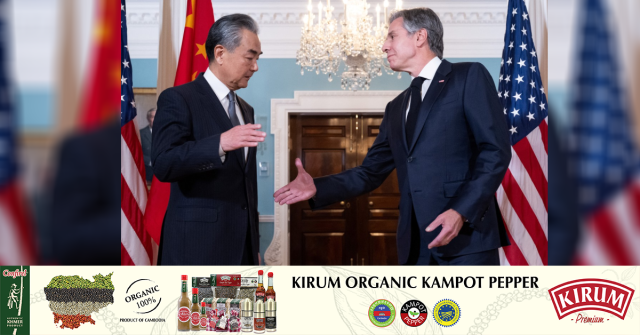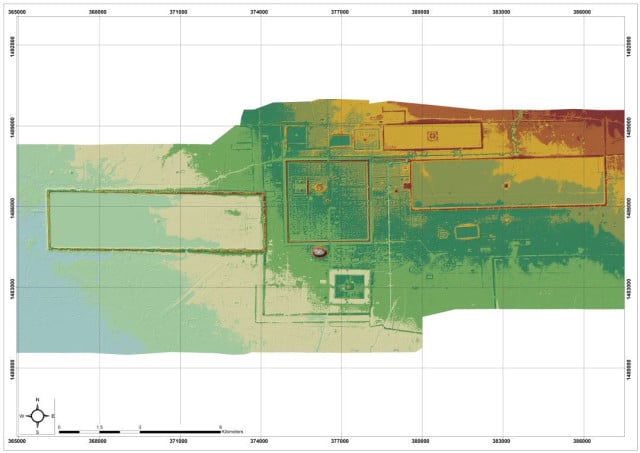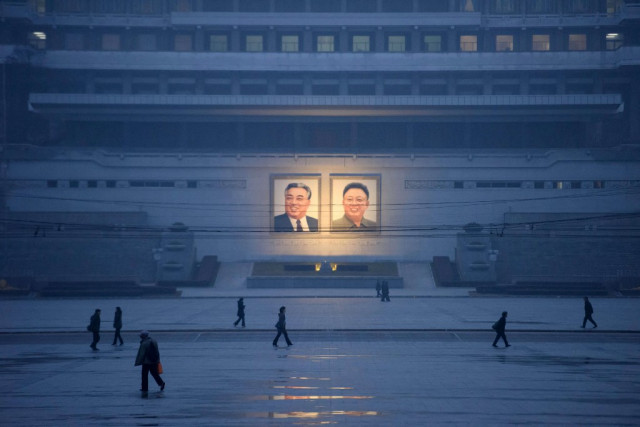China FM Calls for 'Stable' US Ties on Visit to Weigh Xi Summit

- By Agence France-Presse (AFP)
- October 27, 2023 2:10 PM
China's top diplomat voiced hope Thursday for more stable relations with the United States after months of turbulence as he paid a rare trip to Washington to prepare a potential visit by President Xi Jinping.
President Joe Biden has invited Xi to San Francisco next month to participate in the Asia-Pacific Economic Cooperation (APEC) summit, but he has also stood firm on China in the run-up, keeping up a stream of targeted sanctions and staunchly backing US allies in disputes with Beijing.
Chinese Foreign Minister Wang Yi began by meeting Secretary of State Antony Blinken, who told his guest that he looked forward to "constructive conversations" that included a closed-door dinner.
Wang told Blinken, who paid a visit to Beijing in June, that China wanted to "reduce misunderstanding."
China seeks to "expand common ground and pursue cooperation that will benefit both sides so that we can stabilize US-China relations and return them to the track of healthy, stable and sustainable development," Wang said.
Acknowledging that differences will still come up, Wang said that China would respond "calmly, because we are of the view that what is right and what is wrong is not determined by who has the stronger arm or the louder voice."
On Friday, Wang will speak at the White House with National Security Advisor Jake Sullivan. No meeting has been announced with Biden, but an encounter is widely expected after Xi received Blinken in Beijing.
US officials have repeatedly spoken of creating "guardrails" with China to prevent worst-case scenarios and have sought, without success, to restore contact between the two militaries.
State Department spokesman Matthew Miller said Blinken's meeting with Wang was part of efforts to "maintain open lines of communication and responsibly manage US-China relations," but added: "The United States will continue to stand up for our interests and values and those of our allies and partners."
Biden on Wednesday warned China of US treaty obligations to the Philippines, which said that Chinese vessels deliberately hit Manila's boats in dispute-rife waters -- an account contested by Beijing.
Speaking alongside Australian Prime Minister Anthony Albanese, Biden vowed to compete with China in "every way according to the international rules -- economically, politically, in other ways. But I'm not looking for conflict."
Tensions have been particularly high over Taiwan, the self-ruling democracy claimed by Beijing which over the past year has launched major military exercises in response to actions by US lawmakers.
China's defense ministry on Thursday accused Taiwan's ruling Democratic Progressive Party of pushing the island toward a "dangerous situation of war."
- What are 'stable' ties? -
Robert Daly, director of the Wilson Center's Kissinger Institute on China and the United States, said Wang was likely seeking assurances that the Biden administration will not "embarrass" Xi if he comes to San Francisco, either through harsh new policies or public comments.
"They would like to have a smooth glide path and then a smooth exit from the meeting," he said.
Daly said the two powers had very different views on what "stable" ties meant, with the United States having no intention of changing course from viewing China as a threat and applying pressure.
"By stabilization, we mean that we want to be able to do that without greatly increasing the chance of conflict," Daly said.
"The Chinese view is that stabilization would mean America ceasing this relentless stream of provocations and insults such that China is free to focus on its extremely weak domestic economy," he said.
The Biden administration in recent months has tightened export curbs on chips to China, stepped up military support for Taiwan and issued sanctions targeting individual Chinese over support for Iran's drone program and over production of chemicals that make fentanyl, the painkiller behind an addiction epidemic in the United States.
The United States and China have also traded barbs over the conflict in the Middle East, where Biden has been Israel's foremost ally.
The diplomacy with China comes as the United States enters an election season in which Biden's predecessor Donald Trump, who is seeking to return to the White House, has made hawkish criticism of Beijing a signature policy.
© Agence France-Presse















